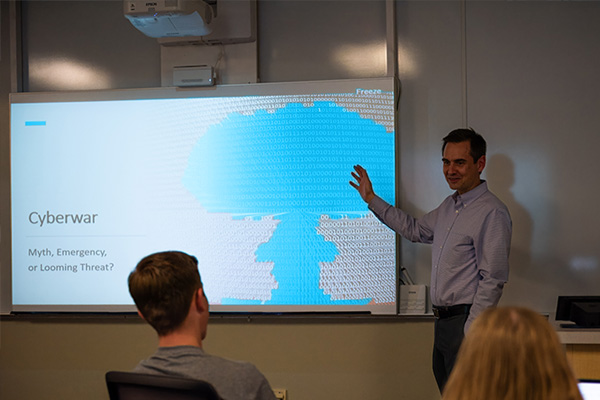Mathematical Foundations of Cryptography Certificate
Program Quick Facts
Credits
12
Start Terms
Fall
|Spring
|Summer
Available
On Campus
|Online
Tuition
$4,390.20
estimated total cost
Further your mathematical knowledge
Modern cryptography applies theories from mathematics, computer science, and electrical engineering, to design and implement strong encryption methods which are important to the safety of computer systems today.
Perform multifaceted calculations. Use security algorithms and protocols. Heighten your skills in problem solving and programming. Understand and apply probability, divisibility, and modular arithmetic to your work. Discover the principles behind complex cryptosystems.
Calling all STEM majors
At DSU, we’ve crafted our certificate so that you can earn a degree in mathematics or double major in mathematics and computer science.
The Mathematical Foundations of Cryptography Certificate is for Dakota State STEM majors who would like to enhance their skills and knowledge of mathematics related to technology by understanding the mathematical foundations of algorithms and protocols used to secure information.
Apply your knowledge
With a certificate in math cryptography, your knowledge in arithmetic, techniques, and algorithms will be endless.








